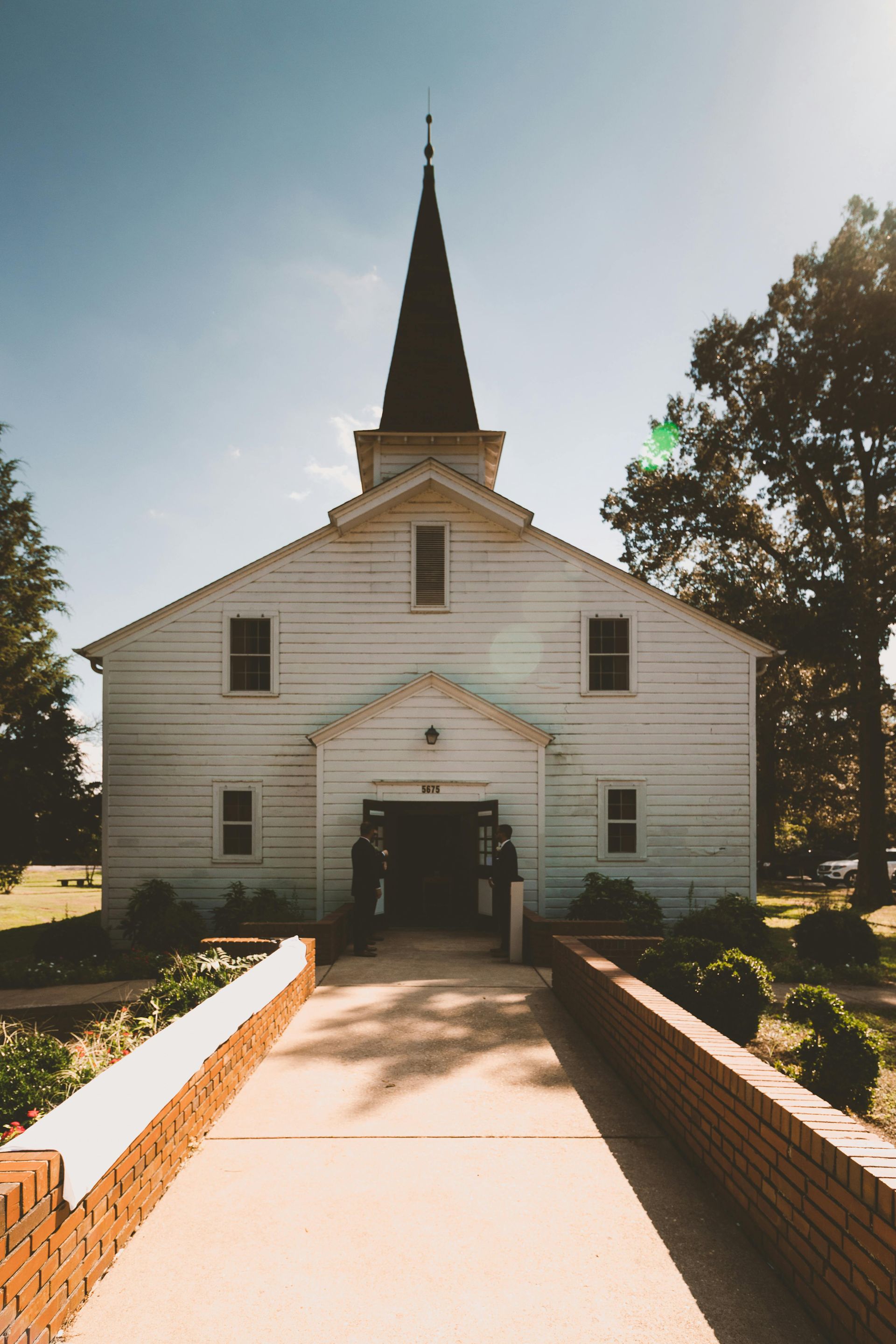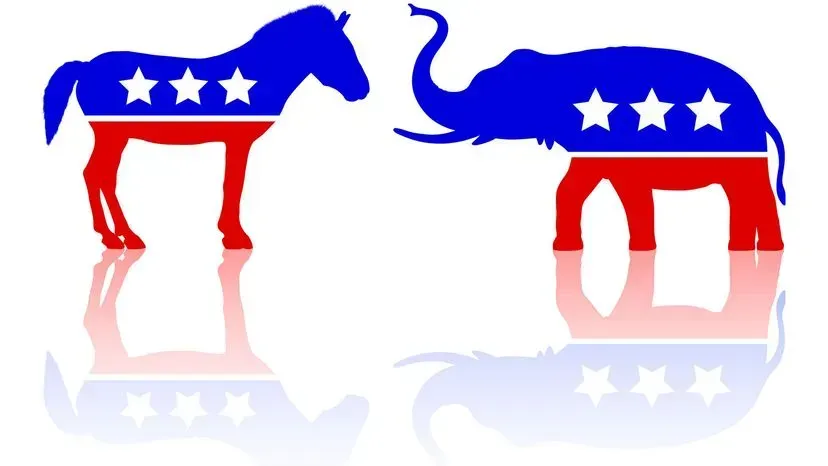S.O.A.L. Position Papers
Religion:

“Congress shall make no law respecting an establishment of religion, or prohibiting the free exercise thereof” - First Amendment To The U.S. Constitution
S.O.A.L. is an education and scholarship organization, not a religious organization, but our curriculum will accurately portray the founding father’s thoughts on religion as their beliefs in God helped to shape their views on what America could and should be like.
The question of whether America was founded as a Christian nation is a topic of debate among historians, scholars, and policymakers.
The Founding Fathers of the United States came from diverse religious backgrounds. Most were Protestants. The largest number were raised in the three largest Christian traditions of colonial America— Anglicanism (as in the cases of John Jay & George Washington) Presbyterianism and Congregationalism (as in the case of John Adams)
Other Protestant groups included the Society of Friends (Quakers), the Lutherans, the Dutch Reformed, and three Founders of Roman Catholic heritage.
Christian principles and values have influenced the nation's history, culture, and laws and many of the Founding Fathers referenced Judeo-Christian ethics in their writings and speeches. Christian organizations played a significant role in various social and political movements throughout American history, but the United States was not explicitly founded as a Christian nation in the sense of establishing Christianity as the official state religion. Instead, the Founding Fathers sought to create a government that embraced pluralism and protected religious freedom for all citizens, regardless of their faith.
An article in Britannica Online says, “On the surface, most Founders appear to have been orthodox (or “right-believing”) Christians. Most were baptized, listed on church rolls, married to practicing Christians, and frequent or at least sporadic attenders of services of Christian worship. In public statements, most invoked divine assistance.
Seven men are said to have been the principle Founding Fathers: George Washington, Thomas Jefferson, John Adams, Benjamin Franklin, Alexander Hamilton, John Jay, and James Madison.
For some perspective, here are a few quotes from these Founders that reference God and Religion.
ALEXANDER HAMILTON
“Americans rouse - be unanimous, be virtuous, be firm, exert your courage, trust in Heaven, and nobly defy the enemies both of God and man!”
“I have carefully examined the evidences of the Christian religion, and if I was sitting as a juror upon its authenticity I would unhesitatingly give my verdict in its favor. I can prove its truth as clearly as any proposition ever submitted to the mind of man.”
JOHN JAY
The Bible is the best of all books, for it is the word of God and teaches us the way to be happy in this world and in the next. Continue therefore to read it and to regulate your life by its precepts. April 9, 1784
JAMES MADISON
It is the duty of every man to render to the Creator such homage...Before any man can be considered as a member of Civil Society, he must be considered as a subject of the Governor of the Universe. June 20, 1785
BENJAMIN FRANKLIN
Enduring the slow and frustrating progress during the 1787 Continental Congress, Franklin sought to present a history lesson of Divine Intervention on behalf of the colonies and to remind his peers to invoke God’s help and wisdom as they plotted out the future for America.
Franklin began – “Mr. President, The small progress we have made after 4 or five weeks close attendance & continual reasonings with each other -- our different sentiments on almost every question, several of the last producing as many noes as ays, is methinks a melancholy proof of the imperfection of the Human Understanding…..
how has it happened, Sir, that we have not hitherto once thought of humbly applying to the Father of lights to illuminate our understandings?
In the beginning of the contest with Great Britain, when we were sensible of danger we had daily prayer in this room for the Divine Protection. -- Our prayers, Sir, were heard, and they were graciously answered.
All of us who were engaged in the struggle must have observed frequent instances of a Superintending providence in our favor.
To that kind providence we owe this happy opportunity of consulting in peace on the means of establishing our future national felicity. And have we now forgotten that powerful friend? Or do we imagine that we no longer need His assistance.
I have lived, Sir, a long time and the longer I live, the more convincing proofs I see of this truth -- that God governs in the affairs of men. And if a sparrow cannot fall to the ground without His notice, is it probable that an empire can rise without His aid?
We have been assured, Sir, in the sacred writings that "except the Lord build they labor in vain that build it." I firmly believe this; and I also believe that without His concurring aid we shall succeed in this political building no better than the Builders of Babel…
I therefore beg leave to move -- that henceforth prayers imploring the assistance of Heaven, and its blessings on our deliberations, be held in this Assembly every morning before we proceed to business, and that one or more of the Clergy of this City be requested to officiate in that service.” 1787
Despite his personal and persuasive attempt, the Congress did not vote on Franklin’s request…but all knew just where Franklin stood.
GEORGE WASHINGTON
Washington survived numerous life & death close calls during the French and Indian War and was well aware that God was looking out for him as he wrote to his brother John in 1755.
"By the all-powerful dispensations of Providence, I have been protected beyond all human probability and expectation; for I had four bullets through my coat, and two horses shot under me, yet escaped unhurt, altho' death was leveling my companions on every side."
Washington also believed the hand of God was at work on America’s behalf during the Revolutionary War and believed it was obvious for all to see and acknowledge.
“The Man must be bad indeed who can look upon the events of the American Revolution without feeling the warmest gratitude towards the great Author of the Universe whose divine interposition was so frequently manifested on our behalf.” 1789
Washington would reiterate throughout his career, that when it came to religion, everyone had freedom of conscience or the right to believe—or not—as they saw fit. Thomas Jefferson certainly agreed.
THOMAS JEFFERSON
Jefferson strongly believed in the principle of religious freedom. He considered it a fundamental human right for individuals to practice their religion (or choose not to) without interference from the government. He famously wrote the Virginia Statute for Religious Freedom in 1777, which was passed into law in 1786 and became a precursor to the First Amendment of the United States Constitution.
“Believing with you that religion is a matter which lies solely between Man & his God, that he owes account to none other for his faith or his worship, that the legitimate powers of government reach actions only, & not opinions, I contemplate with sovereign reverence that act of the whole American people which declared that their legislature should ‘make no law respecting an establishment of religion, or prohibiting the free exercise thereof,’ thus building a wall of separation between Church & State.”
JOHN ADAMS
Perhaps the strongest endorsement of Heavenly Influence in the formation of America and its government comes from the second President John Adams. In 1789 he wrote that moral and religious values were at the heart of the principles embedded in the Constitution.
Adams wrote, “While our country remains untainted with the principles and manners which are now producing desolation in so many parts of the world; while she continues sincere, and incapable of insidious and impious policy, we shall have the strongest reason to rejoice in the local destination assigned us by Providence.
But should the people of America once become capable of that deep simulation towards one another, and towards foreign nations, which assumes the language of justice and moderation while it is practicing iniquity and extravagance, and displays in the most captivating manner the charming pictures of candor, frankness, and sincerity, while it is rioting in rapine and insolence, this country will be the most miserable habitation in the world; because we have no government armed with power capable of contending with human passions unbridled by morality and religion.
Avarice, ambition, revenge, or gallantry, would break the strongest cords of our Constitution as a whale goes through a net.
Our Constitution was made only for a moral and religious people. It is wholly inadequate to the government of any other.” 1798
AMERICA SPEAKS
According to an average of all 2023 Gallup polling, about three in four Americans said they identify with a specific religious faith. By far the largest proportion, 68%, identify with a Christian religion, including 33% who are Protestant, 22% Catholic and 13% who identify with another Christian religion or simply as a "Christian."
Seven percent identify with a non-Christian religion, including 2% who are Jewish, 1% Muslim and 1% Buddhist, among others. Twenty-two percent of Americans said they have no religious preference. The Founding Fathers envisioned an America welcoming to all and accepting each with their individual beliefs without interference from the government.
Seventy-one percent say religion is “very” or “fairly” important in their lives but that number has declined in recent years and church attendance is declining as well. Will America’s declining faith in religion affect our national future? Time will tell.
Until then, S.O.A.L.’s mission is not to evangelize or recruit for any particular religion but to accurately tell the story that reveals religion’s important role in the founding of America as witnessed by its incorporation into the First Amendment to the Constitution.
S.O.A.L.’s mission is to help create the next generation of informed and engaged citizens, religious or not, who will act to help preserve Liberty for the next generation.
Copyright © Scholars of American Liberty | All Rights Reserved

